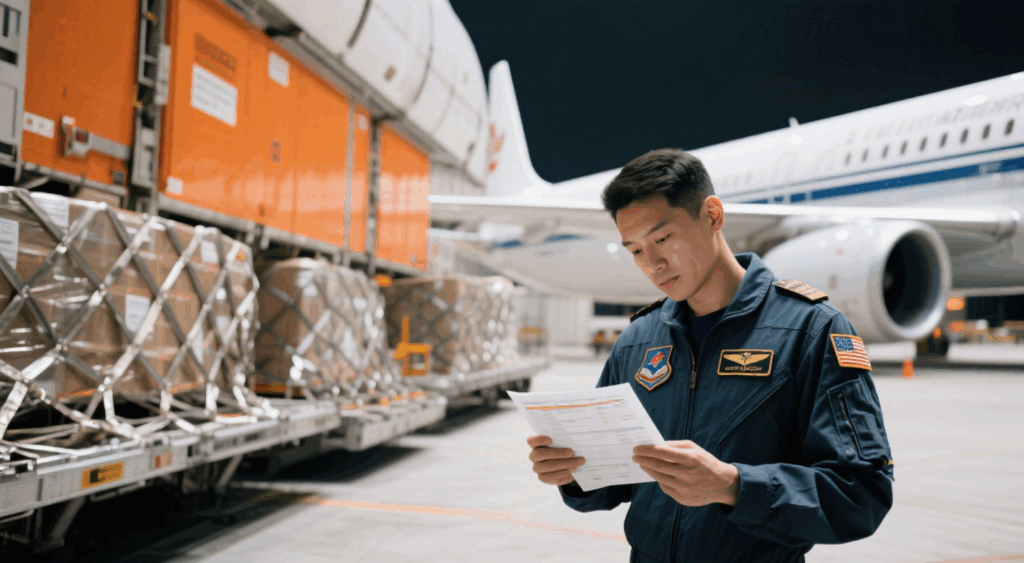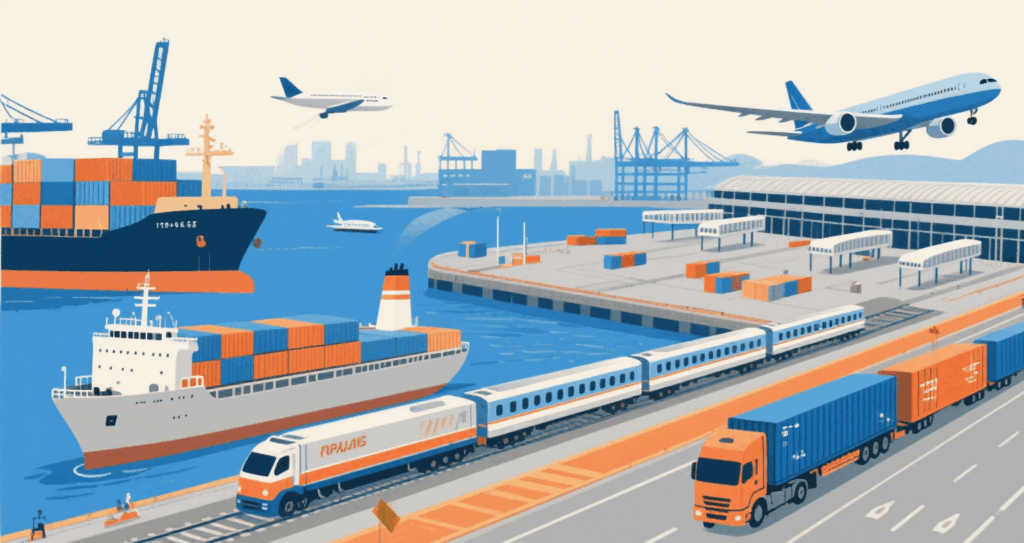China remains the world’s largest exporter, supplying everything from electronics and textiles to heavy machinery. For global importers, choosing the right freight forwarding company China is essential for managing shipping costs, customs procedures, and delivery timelines. However, the market is crowded with options, making it difficult to select a reliable partner. Moreover, without careful planning, importers risk hidden surcharges, shipment delays, and compliance issues. This article explains freight forwarding services, costs, routes, required documents, and strategies to simplify your logistics.
Why Work with a Freight Forwarding Company in China?
Freight forwarders act as intermediaries between shippers and carriers. They manage transportation, negotiate rates, and handle documentation. As a result, businesses can reduce logistics complexity, ensure smooth customs clearance, and focus on core operations.
Key benefits include:
- Competitive freight rates through volume contracts.
- Expertise in customs compliance and trade regulations.
- End-to-end logistics visibility with tracking systems.
- Consolidation of shipments to lower costs.
- Faster problem-solving when disruptions occur.
What Services Do Freight Forwarding Companies in China Provide?
Forwarders offer a wide range of services covering multiple modes of transport.
| Service | Description | Benefit |
|---|---|---|
| Sea Freight (FCL/LCL) | Full or shared containers to global ports | Cheapest for large cargo |
| Air Freight | Priority and economy air solutions | Fastest delivery times |
| Rail Freight | China–Europe & intra-Asia connections | Balance of cost and time |
| Customs Brokerage | Filing documents, duties, and tax compliance | Prevents clearance delays |
| Warehousing | Storage, packing, and distribution | Enhances supply chain flexibility |
| Multimodal Solutions | Sea + air + truck combinations | Optimized transit times and costs |
Accordingly, the right forwarder tailors services based on cargo type and urgency.

How Much Do Freight Forwarding Services Cost?
Pricing depends on route, mode, and cargo size.
Container Shipping Rates
| Container Size | Average Cost (USD) | Capacity |
|---|---|---|
| 20GP | $1,000–$1,300 | 28–30 CBM / 22 tons |
| 40GP | $1,600–$2,100 | 58–60 CBM / 26 tons |
| 40HQ | $1,700–$2,300 | 68 CBM / 26 tons |
For example, shipping a 40HQ of furniture from Guangzhou to Los Angeles may cost around $2,150 with a 25-day transit.
Air Freight Rates
| Weight Range | Average Cost (USD/kg) | Transit Time |
|---|---|---|
| 0–100 kg | $6–$9 | 3–6 days |
| 100–500 kg | $5–$7 | 4–7 days |
| 500+ kg | $4–$6 | 5–8 days |
On the other hand, urgent electronics shipments often justify higher air freight rates.
Which Trade Routes Are Most Important?
Freight forwarding companies in China operate through key global corridors.
| Origin Port/Airport | Main Destination | Transit Time (Sea/Air) | Cargo Type |
|---|---|---|---|
| Shanghai | Los Angeles | 22–26 days / 5–6 days | Electronics, apparel |
| Shenzhen/Yantian | Hamburg | 28–32 days / 6–8 days | Furniture, machinery |
| Ningbo | Dubai | 18–22 days / 4–6 days | Textiles, plastics |
| Qingdao | Mumbai | 13–16 days / 3–5 days | Chemicals, garments |
Moreover, forwarders consolidate shipments to maximize efficiency across these routes.
What Documents Are Required?
Correct documentation prevents clearance delays.
| Document | Purpose |
|---|---|
| Bill of Lading/Airway Bill | Proof of shipment and ownership |
| Commercial Invoice | Declares product value and description |
| Packing List | Details items, weight, and packaging |
| Certificate of Origin | Confirms country of manufacture |
| Import/Export License | Authorizes restricted goods |
| Customs Declaration | Mandatory filing for international trade |
Without a doubt, experienced forwarders help ensure accuracy and compliance.
What Factors Affect Freight Forwarding Costs?
Charges depend on multiple variables:
- Cargo Volume & Weight – Rates are based on CBM or kg.
- Mode of Transport – Sea freight is cheapest, air is fastest.
- Seasonality – Prices increase during Chinese New Year and peak holiday seasons.
- Customs Duties & Taxes – Vary by country and HS code.
- Fuel Prices & Surcharges – Volatility affects shipping lines and airlines.
- Origin & Destination – Longer distances increase costs.
In addition, global supply chain disruptions can cause temporary surges.
Pros and Cons of Each Mode
| Mode | Pros | Cons |
|---|---|---|
| Sea Freight | Lowest per-unit cost, scalable capacity | Slow transit, port congestion |
| Air Freight | Fastest option for urgent shipments | High price per kg |
| Rail Freight | Balanced cost and delivery time | Limited coverage, longer lead times |
| Courier | Convenient, door-to-door delivery | Unsuitable for heavy cargo |
To summarize, forwarders help select the mode that best matches your shipment’s needs.

How to Choose the Best Freight Forwarding Company in China?
Practical tips include:
- Check experience with your industry’s products.
- Evaluate global networks and partnerships.
- Compare quotes across multiple forwarders.
- Assess customs expertise to minimize clearance delays.
- Look for technology integration for real-time tracking.
For instance, one electronics importer from Delhi reduced delays by 30% after switching to a forwarder with advanced tracking systems and customs brokerage expertise.
Real Case Studies
Case 1: Electronics Shanghai → Los Angeles
- Cargo: 40HQ, laptops and accessories
- Mode: Sea Freight
- Cost: $2,150
- Transit: 25 days
- Result: Saved 18% through early booking and consolidation.
Case 2: Textiles Shenzhen → Dubai
- Cargo: 5 CBM apparel
- Mode: LCL Sea Freight
- Cost: $480
- Transit: 19 days
- Result: Flexible solution for a mid-volume shipment.
Conclusion
The choice of a freight forwarding company China determines the efficiency of global supply chains. Sea freight remains the most economical option, air freight ensures speed, and multimodal solutions balance cost and time. To summarize, importers who plan ahead, consolidate cargo, and partner with experienced forwarders secure reliable deliveries at competitive rates. Ultimately, selecting the right partner helps businesses manage costs, reduce risks, and maintain smooth trade flows with China.
Request a Quote
Need a tailored solution for your shipping from China?
Let TJ China Freight Forwarder assist you with reliable, cost-effective service.
FAQs
Q1.What services should I expect from a freight forwarding company in China?
A freight forwarding company in China provides sea, air, rail, and courier solutions. They also manage customs clearance, warehousing, and multimodal shipments. These services ensure seamless delivery while lowering the freight forwarding costs from China for businesses worldwide.
Q2.How can I reduce freight forwarding expenses?
Importers can save money by consolidating shipments, booking off-peak, and negotiating long-term contracts. Additionally, using FOB terms provides flexibility in selecting carriers. These strategies lower the overall cost of freight forwarding from China without compromising reliability.
Q3.Are freight forwarding companies responsible for customs duties?
No. While forwarders assist in filing documents, customs duties are paid by importers. However, forwarders ensure compliance and prevent errors. This helps businesses avoid penalties and streamline the China freight forwarding process.
Q4.Which industries rely most on Chinese freight forwarders?
Industries like electronics, textiles, automotive, and consumer goods depend heavily on forwarders. These sectors require large volumes of imports, making them frequent users of freight forwarding companies in China for bulk shipments.
Q5.Is air freight a good option for small businesses?
Yes. Air freight is suitable for smaller high-value goods where speed is critical. Although more expensive per kg, it ensures timely delivery and reduces risks. Many SMEs consider it the best freight forwarding method from China for urgent goods.

